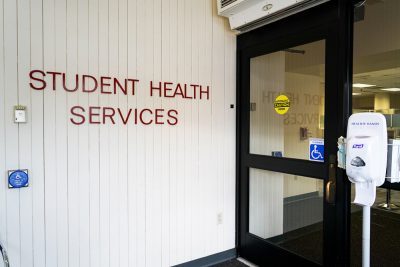
January may have been Mental Wellness Month, but Boston University Student Health Services’ free programs for students to take care of their mental health will be available all throughout the semester.
The initiatives include journaling for self-expression, yoga, support groups and more. These campus wellness activities are under the Health Promotion & Prevention department within SHS, said Ilana Licht, a clinical psychologist at SHS who works in the Behavioral Medicine department.
“My hope is that these services have a positive impact on students in letting them know that they’re not alone, that we’re here to help, that help’s available,” Licht said.
Students who come into the behavioral medicine department at SHS are offered a brief assessment with a clinician who can assess and discuss the best treatment options for the student, Licht said. While individual therapy and psychiatry services are certainly an option, Licht said, they’re not the only ones.
“When students come in and they’re looking for help or treatment, they automatically assume that individual therapy is a thing that they need,” Licht said.
Licht said group therapy at SHS provides opportunities for students to connect with each other, and the “unique perspective” students give each other in group therapy cannot happen in individualized therapy.
“In individual therapy … having to find a good fit is one step that can sometimes be challenging,” Licht said. “When you’re in a group, because there’s more than one person there, you’re likely to find at least a few people who are going to be able to give you the kind of support that you’re looking for.”
Carrie Landa, executive director of student wellbeing, wrote in an email interview that the programs offered by SHS can help students connect to one another and create a sense of community.
“Making social connections and feeling a sense of belonging in a community also supports emotional wellbeing,” Landa wrote. “Any experience that supports any dimension of wellbeing contributes to a healthier holistic person.”
SHS offers support groups, which begin the week of Jan. 30 and continue throughout May 3. Regular groups include Managing Anxiety, Mindfulness Meditation and Building a Stronger You. Affinity groups that are offered include Asian Students Support Group, Black Students Support Group and LGBTQ+ Support Group, according to the website.
Allison Lu, a junior in the College of Arts and Sciences, said she thinks SHS should turn to social media to get information about the programs to students more efficiently.
“I know that they exist … but I feel like I don’t know a lot about the specific programs that they have,” Lu said.
Outside of SHS, the Center for Anxiety and Related Disorders is another on-campus option for students struggling with their mental health. According to its website, CARD is a research center as well as a clinical center offering various treatment options to the community.
Kristy Cuthbert, a postdoctoral fellow at the clinic, said CARD offers a behavioral medicine clinic that specializes in treatment for insomnia and chronic pain. CARD treatments include cognitive behavioral therapy for social anxiety, phobias and PTSD.
“[We] try to improve access for not just students, but the whole community,” Cuthbert said.
All of these programs are backed by the research arm of CARD, which looks to innovate new techniques in how mental health is treated.
“Before we even start, for example, we look at brain imaging, or what we call CO2 reactivity,” said Cuthbert.
Looking at this data beforehand, Cuthbert said, could help decide what form of treatment is best for a person.
Cuthbert recommends that students in a competitive environment like BU should take time for themselves.
“Starting early and prioritizing your self-care and taking time for yourself, like if you need the day off, take the day,” Cuthbert said.
When practicing self-care independently, Licht said, deep breathing exercises, meditation, stretching and checking in with yourself are key ways to stay refreshed. Self-care could also involve reaching out to friends, family or to the community in ways such as volunteering, Licht said.
“We’re here to support you, your emotional and physical well-being and also your ability to function as a student.”


















































































































Susan Chu • Feb 10, 2023 at 12:09 pm
Great initiative!